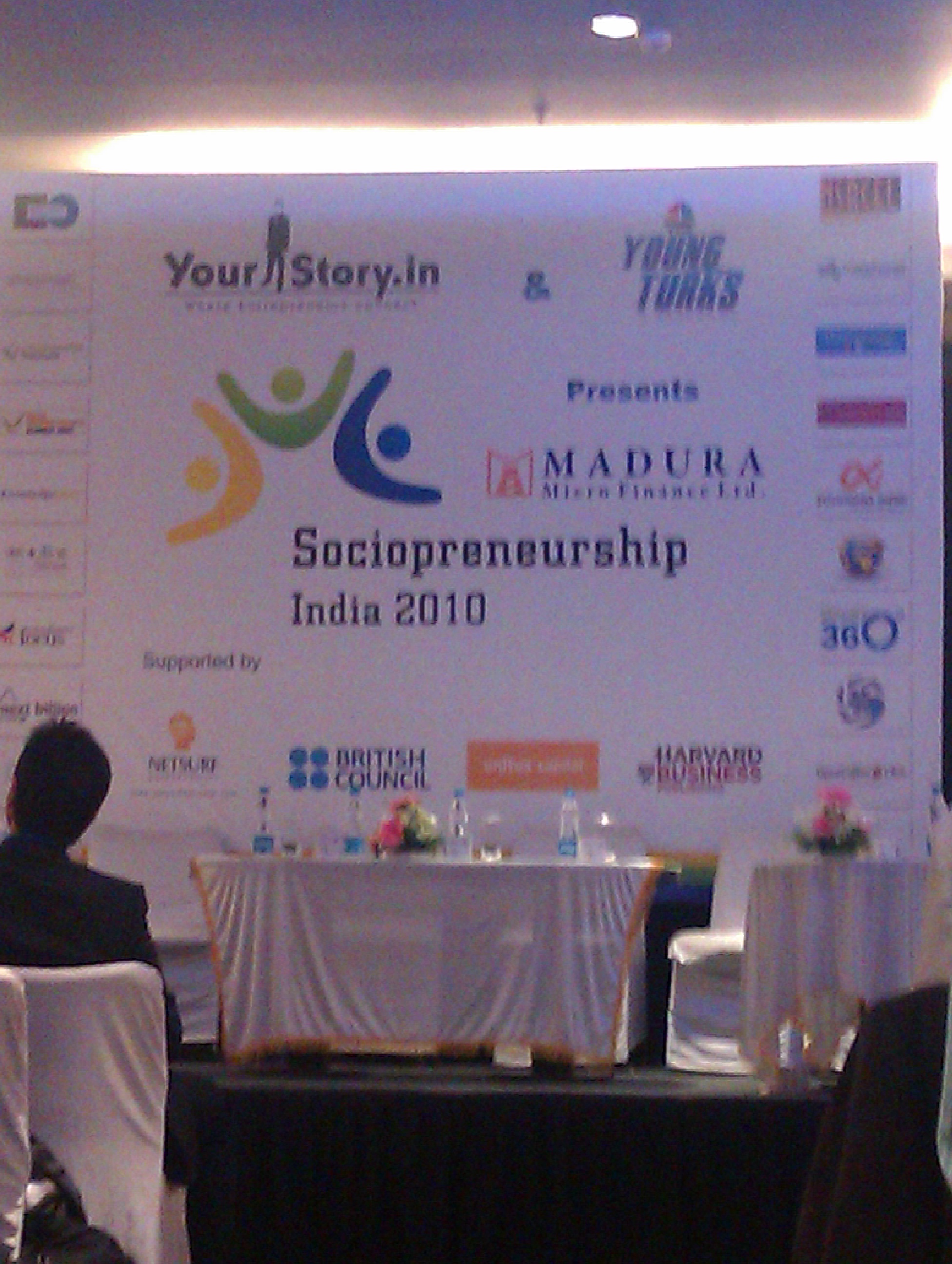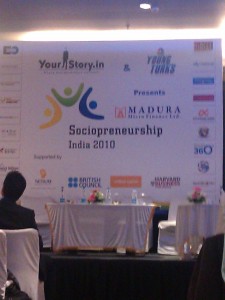Notes from a panel discussion at Sociopreneurship 2010
The YourStory.in + CNBC TV18 event, titled “Sociopreneurship 2010”, was held a few days ago at the Royal Orchid, Bangalore. We were there and here are some of the updates

The YourStory.in + CNBC TV18 event, titled “Sociopreneurship 2010”, was held a few days ago at the Royal Orchid, Bangalore. We were there and here are some of the updates of that day.
The event started off with a panel discussion on “Opportunities and Challenges for financial inclusion in India”. The panelists were Dr. Tara Thiagarajan (Madura Microfinance), Brij Mohan ( ACCESS Development Services), Ramesh Ramanathan (Janalakshmi), Geeta Goel (Dell Foundation), Rwituja Gomes Mookherjee (British Council), Ganesh Rangaswamy (Lok Capital) and Rahul Bedi (Intel South Asia).

The definition of social entrepreneurship was an important one, with some of the panelists defining it as any entrepreneurial idea being conceptualized/executed with a social intent. The important aspect of this definition was also the fact that a social entrepreneur need not be one with a non-profit mindset.
Much to my personal disappointment, the focus was largely on the subject of microfinance. However, I guess this ‘financial inclusion’ definition is still evolving and perhaps microfinance is the only tool out there currently.
Rather than focussing on these microfinance-based discussions, I would like to highlight some interesting learnings for potential social entrepreneurs out there. Rahul of Intel summarized 3 key things that one needs to consider to scale and sustain in the social space:
- Focus on the ‘social’ bit of the phrase ‘Social Entrepreneurship’. It is extremely important to understand the social value chain really well.
- Take time to scale. Pre-mature scaling is usually dangerous – a social venture has to be allowed to grow gradually.
- Don’t underestimate the value of the government. He stated that the role of the government is valuable and is currently doing some fantastic work! He urged social entrepreneurs to leverage the government’s reach and scale.
Brij Mohan too emphasised that getting your social intent right was the most important step. After establishing your social intent, you can then shift gears to apply business skills in taking your social idea forward.
Dr. Tara brought out an important point that most organizations on the scaling phase tend to face – losing the sight of your idea’s original intent. She said that a social entrepreneur should always focus on the value system of her/his organization.
Ramesh Ramanathan, who is a wonderful speaker, stated categorically that he really had no advise to give. He asked entrepreneurs to get real about expectations, citing the statistic that 90% of all new initiatives fail. But, entrepreneurs need to be relentless in their pursuit – that is important, he stated.
As part of his long and illustrious stint in this space, Ramesh has some valuable experience and he pointed out the two main challenges that one faces when working in a social space:
- There are no clear parameters to measure your success or victory.
- It is very difficult to get talented people to work in this space, to believe in the long journey of doing social good.
These bits of information were very useful for the many social entrepreneurs who had gathered at the event. The second half of the day was dedicated to an exciting session of 17 entrepreneurs who showcased their social ideas to the audience. We will write about these ideas in the forthcoming articles. Watch this space.
This story made me
-
97
-
121
-
89
-
167











